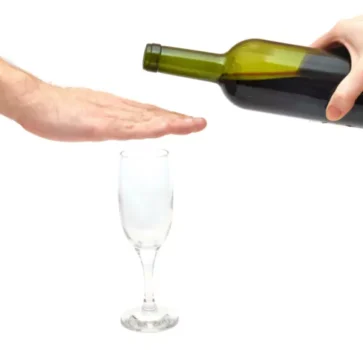Alcohol Tremors Explained Alcohol Shakes & What They Mean

It can also result from something more serious, like liver disease and addiction. Alcohol withdrawal may cause shakes when the effects of alcohol on the nervous system wear off, and the brain becomes overwhelmed by activity in the nervous system. This may lead to the brain sending incorrect messages to the nerves in the hand, making the hands and fingers shake.
Alcohol Shakes vs Delirium Tremens

If you have stopped using alcohol, haven’t talked to your doctor, and think you might be having DTs symptoms, call 911. Delirium tremens, also called DTs or alcohol withdrawal delirium (AWD), is an uncommon, severe type of alcohol withdrawal. It’s a dangerous but treatable condition that starts about 2-3 days after someone who’s dependent on alcohol suddenly stops drinking. As discussed above in this article, alcohol tremors can sometimes lead to a life-threatening condition called delirium tremens.
- Reach out to us at to speak to an admissions navigator to learn more about treatment, admissions, and how to take your first steps toward recovery.
- However, professional help and medications can help manage the tremors.
- Sodium oxybate showed no significant changes from placebo in LD patients whose symptoms do not improve with alcohol.
- In addition to these symptoms, delirium tremens can also have other effects.
How To Get Rid Of Shakes After Drinking
- You’ll first need to detox from alcohol altogether in a healthy and effective manner.
- You may also verify your insurance, ask questions, or schedule an intake assessment.
- He or she can guide you toward the safest, most comfortable, and most effective plan for your sobriety.
- Alcohol withdrawal symptoms may include anxiety, headaches, vomiting, insomnia, hallucinations, seizures, fever, and high blood pressure.
- They help lower activity in your CNS, which is the source of most of the dangerous problems with DTs.
If you suddenly stop drinking, you may experience symptoms of alcohol withdrawal. Baclofen is a muscle relaxant that affects the central nervous system. It is generally prescribed to treat muscle spasticity in those suffering from multiple sclerosis, cerebral palsy, and spinal cord injuries. Although it is not a narcotic, there are still possible side effects, which could be severe. While studies have shown baclofen may be effective in reducing symptoms of alcohol withdrawal, including tremors, it is an “off-label” use of the drug at this time.
Emergency Delirium Tremens Symptoms

Landmark Recovery’s expert medical team provides compassionate care tailored to each individual’s needs. Whether persistent shakes or a loss of control, recovery starts with a single step. I’ve spent the last seven years researching and understanding alcoholism, addiction, and how people get sober. Additionally, I examine the way mental and physical health as well as our relationships with others impact the reasons people drink and their role in maintaining sobriety long-term. Of course, there are more serious reasons you might feel shaky after drinking, including alcohol withdrawal, and we’ll explore those as well. The main reasons why you feel shaky after drinking are that alcohol messes with your brain’s neurotransmitters, dehydrates you, and tremors alcohol can lower your blood sugar.
- In severe cases, a condition called delirium tremens may develop, characterized by seizures and potential fatality 2.
- Other tests may be possible, depending on your symptoms or if you have any other health problems.
- Suddenly, your CNS doesn’t have to pull back against alcohol to keep activity at a proper level.
- When the intake of alcohol suddenly ceases, the brain continues to deliver increased nerve activity, leading to tremors, anxiety, hyperactivity, and other withdrawal symptoms.
- This syndrome can manifest with various symptoms, including shaking and tremors.

When you go to social events or family gatherings, you are likely to have access to alcohol. All of the information on this page has been reviewed and verified by a certified addiction professional. Meet our team of vetted providers and book your first appointment. If you want to change your relationship with alcohol, speak with a professional to see how you can do it safely and effectively. This can lead to asterixis, which causes hands to flap or shake uncontrollably. American Addiction Centers (AAC) is committed to delivering original, truthful, accurate, unbiased, and medically current information.
Drink plenty of water
At Archstone Behavioral Health our mission is to offer readers the most precise and up-to-date information on addiction and behavioral health as possible. We maintain strict accuracy standards, sourcing information exclusively from credible sources for our website content. Heavy drinkers may develop an addiction to alcohol that requires professional treatment. While alcohol shakes are fairly common, only 5-10% of heavy drinkers experience DTs.
